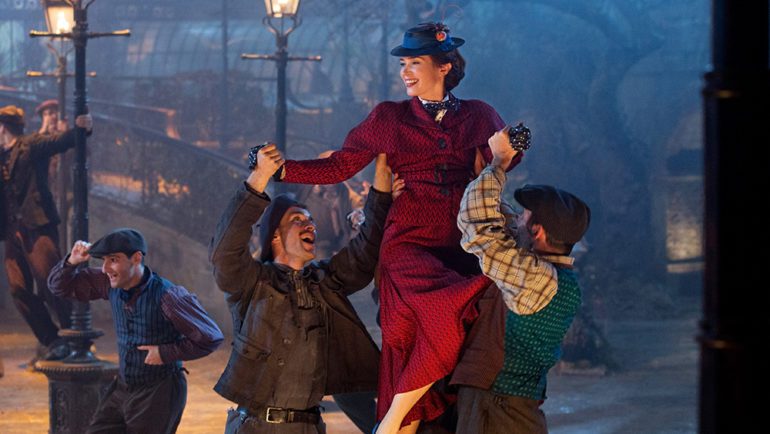Focus Event Puts Spotlight on Production Boom
By Nick Vivarelli
LOS ANGELES (Variety.com) – With global production booming at a breakneck pace, execs from content companies, film commissions and location providers who will be descending from more than 60 countries on London’s Dec. 4-5 Focus show really have something about which to cheer.
Scripted content spawned by streamers has grown by a whopping 680% over the past five years, according to FX Networks Research. IHS Markit estimates that Netflix’s production of first-run originals during the same period skyrocketed from a single title in 2012 to 1,257 hours of films and TV series in 2017, at least a third of which produced outside the U.S.
And concurrently the number of movies made all over the world has also grown by some 100 titles to more than 7,800 last year, also per IHS.
“It’s really a global opportunity,” says Leon Forde, associate director of consulting firm Olsberg SPI, who will be moderating a panel at titled “Capacity and the Global Production Deluge,” on how production hubs around the world can build capacity to take advantage of these opportunities.
“We’re at a point where these projects are made wherever works for them creatively, but also — and importantly — wherever works for them financially,” he says. “And that can take place anywhere in the world.”
Amid this boom the U.K. remains ahead of the European pack, when it comes to film, TV and advertising, according to Focus founder and director Jean-Frederic Garcia.
So it makes sense that during Focus, Ali James, supervising location manager for “Mary Poppins Returns,” will discuss shooting the Disney mega-pic in iconic London locations as a symbolic case history.
James recalls how she was able to get London authorities to “shut down The Mall for a whole weekend” because they “had to take away all traces of [modernity]” from the central road between Buckingham Palace and Trafalgar Square. “It really helps that they are used to doing a lot of filming,” she notes.
“It’s not necessarily cheap, but it’s all eminently doable, and they are all very receptive to our endless requests of getting it just so.”
Garcia notes that the Focus meet is dedicated to international production “of anything that ends up on a screen,” no matter of its size, which is key “just as the silo mentality of the industry has started to shift.”
“We’ve always wanted the event to be cross-disciplined,” he says, underlining that Focus’ fourth edition reflects, how due to convergence, “more and more companies are embracing changes and increasingly becoming creative hubs for production [in a broader sense] rather than being a film production company, or a TV production company or an advertising production company.”
He cites London-based Ridley Scott Creative group and Pulse Films as examples of big outfits that are now completely immersed in this cross-discipline aspect.
Garcia also notes that in their race to get a bigger slice of the pie most governments these days realize that production is converging, so they are devising new types of incentives, including for VFX, animation and games.
Case in point is Serbia, which, in launching a 25% cash rebate earlier this year, boasted that it has become one of “a handful” of countries around the world offering incentives for production of TV commercials.
Eastern Europe, which has long attracted Westerns shoots, is exploding. The Czech Republic and Hungary are filled to capacity. Romania just announced a 35%-45% rebate, while Poland trumpeted a 30% incentive and earmarked 10% of this roughly $53 million cash-rebate pot for animation.
The Polish incentive, expected to kick in in January, has already lured two or three U.S. productions, according to Anna Dziedzic, an exec in the international relations department of the Polish Film Institute, “though of course they are waiting for the incentive to be in place.”
“Stage space is the name of the game right now,” says American line producer Robert Bernacchi, speaking from the Barrandov Film Studios lot in Prague where he is handling the high-octane Warner Bros. Television show “Whiskey Cavalier.”
“I know of half a dozen productions that are looking to get into Prague, or Budapest or England, and they can’t,” Bernacchi notes, because due to stage scarcity, “they are kind of locked-out.”
Outside the U.K., Eastern Europe is trumping Germany, France, Spain and Italy in terms of attracting shoots, although of those countries Italy has made a nice rebound with its relatively recent 30% cash-back rebate.
Rome-based line producer Enzo Sisti believes Italy has the best incentive “because it’s cash-back right away, during the production,” he says. He feels this is Italy’s strength, aside from great locations, crews, craftsmen and studios such as Cinecitta, currently being revamped.
Sisti recounts that, thanks to Italy’s incentives, plus other factors, he was able to snatch the upcoming George Clooney-directed TV series “Catch-22” away from the U.K.
“Paramount wanted to go to England,” he says. “But then with Clooney’s help and the fact that I showed them some amazing locations, and that we did interiors of airplanes at Cinecitta’s upgraded sound-stages,” he changed their minds.
(Pictured above: “,” with Emily Blunt, was shot in London.)

